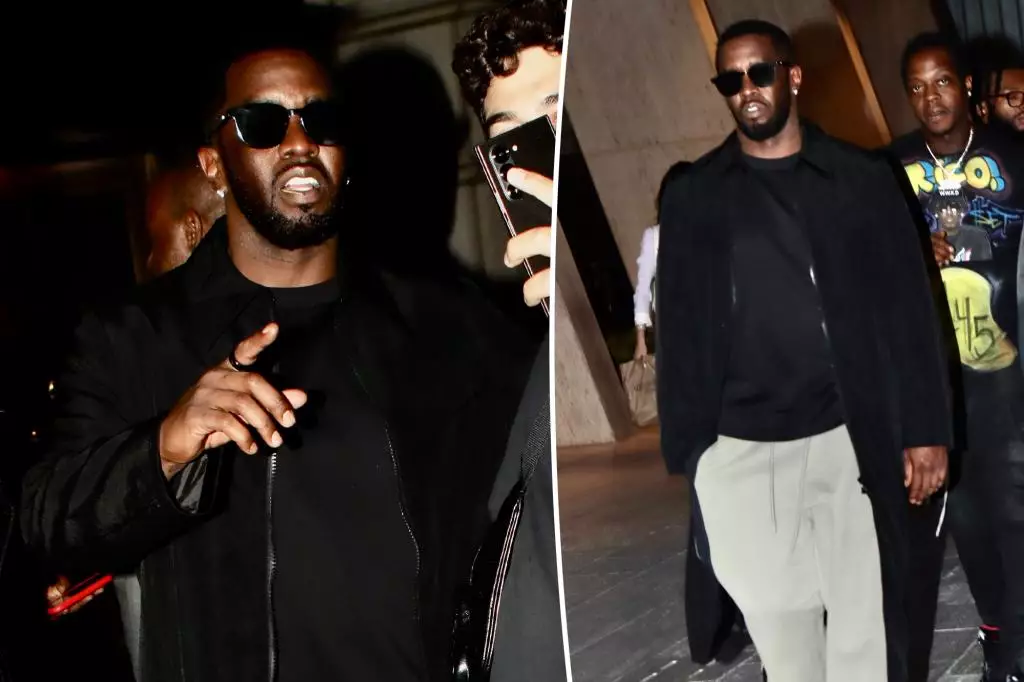The recent arrest of Sean “Diddy” Combs has sent ripples through the entertainment industry and beyond, with significant implications for the music mogul’s career and personal life. An analysis of the events surrounding his legal battles reveals a complex narrative filled with allegations, responses, and the interplay of public perception.
On Monday, Sean Combs was arrested in New York City, with reports indicating that he was being processed at 26 Federal Plaza. Details surrounding the charges remain elusive, emphasizing the enigmatic nature of this high-profile case. A source close to the situation notes that Combs had cooperated fully, voluntarily traveling to New York in anticipation of potential legal proceedings. This cooperation suggests a desire on Combs’ part to address the accusations head-on rather than evade them, which could portray him in a more favorable light. Nevertheless, the lack of clarity regarding the charges raises questions about the nature of the allegations against one of the most recognized figures in the music industry.
Marc Agnifilo, Combs’ attorney, articulated a staunch defense on behalf of his client. He framed Combs as a loving family man and a self-made entrepreneur, vehemently asserting that the prosecution represents an “unjust” pursuit by the U.S. Attorney’s Office. The lawyer’s statement attempts to humanize Combs, inviting the public to see him not merely as a celebrity but as a figure who has devoted decades to building a legacy, while also engaging in philanthropy and community upliftment. This characterization serves to construct a narrative that challenges the legal implications currently facing Combs, inviting supporters to reserve judgment until all facts emerge.
Nevertheless, despite his attorney’s fervent defense, the emergence of serious allegations, particularly those involving sexual misconduct, complicates the picture. The legal landscape surrounding Combs has become increasingly turbulent since ex-girlfriend Casandra “Cassie” Ventura publicly accused him of rape and physical abuse. Such accusations resonate deeply in the current climate where discussions surrounding consent, accountability, and the treatment of women are at the forefront of societal discourse.
Ventura’s lawsuit, filed in November 2023, accuses Combs of systematic abuse, painting a distressing portrait of their decade-long relationship. According to her claims, Combs subjected her to continuous mistreatment, even allegedly facilitating interactions with male prostitutes. These revelations struck a nerve within the broader socio-cultural context that champions victim voices and scrutinizes abusive power dynamics.
The situation escalated further with the release of a video depicting Combs allegedly abusing Ventura in a hotel, reinforcing the gravity of the charges against him. Acknowledging the damaging footage, Combs expressed remorse, seeking professional help and therapy. His admission of guilt, albeit limited to the behavior displayed in the video, demonstrates a complicated interaction between accountability and the longstanding denial of more serious allegations.
The fallout from these allegations has not only affected Combs but also spotlighted a troubling pattern of purported misconduct. With other alleged victims, such as Joi Dickerson-Neal and Liza Gardner, stepping forward with accusations from the past, the narrative surrounding Combs morphs into a larger discussion on the prevalence of sexual abuse within the entertainment industry. The claims of gang-rape, sex trafficking, and racketeering introduce a chilling context, highlighting a potential systemic issue that could extend beyond Combs himself.
The involvement of federal authorities, including a raid by Homeland Security on his residences, has heightened the media frenzy. Notably, the arrest of his sons during the raid unveils implications of familial turmoil amid the unfolding legal dramas. This spectacle raises questions about the impact of such allegations on Combs’ legacy as a musical icon and his role as a father.
As the legal proceedings unfold against Sean “Diddy” Combs, the path ahead remains uncertain. The confluence of his storied career, serious allegations, and personal accountability encapsulates a moment of reckoning, not just for Combs but for society at large. This case stands as a testament to the complexities involved in navigating fame, morality, and the call for justice, compelling audiences and stakeholders alike to remain vigilant and discerning as the facts continue to surface. The ultimate resolution will likely have lasting implications for Combs’ legacy and the larger conversation on abuse within the music industry.

